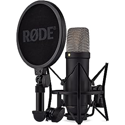Harry Legg Sizzles The Airwaves As Voice of The NBC Sports Radio Network, TV Affiliates and Radio Stations around the Globe

Here in our side of the planet where the preferred voice talents, for radio particularly, are the baritone, voice of God skills and the typical hyped delivery, Harry Legg is an unconventional yet contemporary choice for voiceovers.
That’s because in today’s radio imaging landscape, personality is king.
Harry Legg, being in the industry for years now and having worked in the Top 3 US markets of Chicago, Los Angeles and New York, knows much and understands the conventions. Here in my country particularly, the Philippines, there is a big preference for the baritone larynx and the “hyped” delivery. And we can understand that, our radio industry here has been influenced by the US since the 1920s. So listeners here are accustomed to the deep vocal fries and hard sells of radio personalities.
But just like in the commercial world, things in radio have evolved, especially in the imaging aspect. It’s not just about the thundering voice anymore, it’s about the personality and connection to the audience.
Now, this is not to bash a specific style of voice over, because different needs, require unique and special solutions.
In a video where Harry shared his beginnings in the biz, the 2-time Telly Award recipient said that the key is acting not just announcing. And when you act, you get to embody a character that the listener can relate to. (Harry Legg – How I got into Voiceover)
https://www.youtube.com/watch?v=v2ZQnk5BcDc
No wonder Harry Legg is the top choice for commercial brands, TV and radio networks. He has personality and he is king in his craft.
His recent works include voicing for the summer lineup on CBS TV affiliates and his most recent station signing (at the time of writing this article) is Mega Hit FM in Bonaire – an island municipality of the Netherlands.
Although Harry has crossed into voicing for TV, radio still remains a major part of Harry’s daily work and passion – having been in just about every format and nook of the business from On-Air Talent to Award Winning Creative Services Director to Program Director. Harry is also a shareholder in Benztown Branding – one of the largest and most successful radio and voiceover imaging companies in the world.
Here’s our interview with Harry Legg.
- When you voice for a new station, what comes to your mind first? (Like I can imagine, there is this “muscle memory” that automatically kicks in when you read a certain copy, say for example “All of Today’s Best Music Radio Name Here”. I’m sure you have read hundreds of imaging scripts already, so you must have developed, I don’t know how you call it, but some sort of voiceover muscle memory so to speak.)
That’s funny, I never thought of it that way – as “muscle memory.” It’s true that there is a general vocal delivery that automatically comes to mind when asked to do VO for a particular format – but there are definitely different nuances for many of my clients. I have a CHR that really likes me sounding super friendly and casual instead of the typical sizzle and intensity that’s normally associated with the format. When I take on a new client, I prefer to have a good conversation with the PD and/or Creative Director so that I can get into their heads and understand their particular situation and station goals.
- What do you do to make each project unique from others you have done or currently doing?
Keeping this answer to Station Imaging versus Commercial VO, Narration or Trailer VO, there are only so many ways you can say “All The Hits.” So, being unique is not exactly the task at hand for the vocal delivery on the majority of standard station phrases. The area where I get the chance to really play and have fun bringing the script to life is when there is creative writing and playfulness with the imaging that the listener might not expect to hear – that’s what I love. There is certainly the need to do the standard lines… “kickin’ off 20 minutes commercial free” and so on, but there should be so much more than that to really make your station engaging to the listeners. In my opinion, you need a VO Talent that has range and not just one sound for everything. I hope I am providing that flexibility to my clients.
- In the video “How I Got Into Voiceover”, you mentioned about being coached to find your style, how do you describe your voice style or personality?
The coaching for me was more to beat the stereotypical radio dee-jay sound out of my delivery. Getting rid of that dee-jay sound was most important for commercial work and for TV VO. For Commercial VO you want to discover your signature voice – the one that will get you the most bookings and the one that you are most comfortable doing everyday. This also translates to having a wide range of vocal capability for the various radio formats. There’s a particular sound that I certainly enjoy the most – that’s the CHR sound or the intense sports delivery. But I also voice Jazz, Reggae, Soft AC, Rock, Country, and Hip Hop stations.
- Is this style the same as you had before you became full time in voiceovers or is this style something you have discovered?
I fell in love with CHR radio as a kid and I’ve always leaned heavily toward that style – mostly because it was so much fun presentation-wise.
- I mentioned earlier about style, but let’s talk about your niche or your strongest format, like which radio format do you think you excel at or most comfortable with: CHR, Hot AC, News, Rock?
I’m amazing at all of them! Hahaha! OK, back down to earth… The majority of my clients are in the CHR world or the sports world. The NBC Sports Radio Network is my largest client with hundreds of stations across the country. I also voice for the NPGL – a fairly new sports league in their 3rd year with games telecast on NBC Sports. Sports VO has really taken off for me but I really enjoy all the formats and don’t like to overly pigeonhole myself into a specific genre. Hopefully, the strategy continues to work. I know a lot of VO Talents that really specialize in a particular format and have a ton of success, too.
- Okay, I wonder, as a world-class, in demand voice talent, is it possible to be a jack of all trades? Can you be good at everything, at least in radio, like can you be a master of all formats?
I don’t know about being a master of all but you can certainly have a very diverse roster of clients and be successful.
- Was there a project, that required you to deliver a certain style that you weren’t, let’s say comfortable, or something new to you or challenging but you overcame and conquered?
Some of my international clients are the most fun and the most challenging. Having clients in the middle east has forced me to learn vocal sounds we would never make here in the US. I’ve had to say things in foreign languages simply by following the client’s mp3 examples. I just renewed for another year with Cork’s 96FM in Cork, Ireland. They enunciate their “T’s” way more than we do and that has made for some fun VO sessions.
- I want to bring in the topic of streaming radio, it has reached more audience now than ever before. When you voice for an Internet radio, do you treat it differently than when you voice for a terrestrial radio? (Because Internet radio, at least here in our part of the globe, is not constrained to PPM, definitely depends on the copy, but surely there’s more leeway for style and delivery).
There isn’t anything particularly different in voicing for Internet stations. It all depends on the writing and level of creativity. There should be more room to play on the Internet but most stations seem to offer little as far as creative imaging – probably due to budget constraints.
- Looking ahead, what do you see for the future of voiceovers and radio imaging.
I think we went through a period, at least in the US, where radio freaked-out and stripped stations of personality – both with the on-air talent and with imaging. I think it is crystal clear that an emotional bond between the listener and your station brand is crucial. Jukeboxes or iPods rarely remain at the top of the ratings heap. Obviously, you need to be smart and game the PPM methodology within reason – it’s the measurement tool in the biggest US markets. However, you can still do damn good radio. That involves more than your dee-jays constantly spouting station web addresses, blogs, Facebook, Twitter and Instagram verbiage to the point of tune out or lack of effectiveness. Entertain your audience. Imaging plays a vital role in your station’s personality – don’t neglect it.
As far as imaging voiceover goes, there will continue to be a ton of talents to choose from. Here are some things to consider before selecting a new station voice: Find out what their everyday demeanor is like with their clients. I unfortunately hear stories of talents who are difficult to deal with and won’t go the extra mile when a station gets in a bind. Do not hire a page counting cop. We have page counts in contracts to protect ourselves but a good talent will understand that this is radio and once in a while there’s an extra promotion or something that is needed. Hire someone with vocal range because hopefully you are going to have some fun and occasionally do off-the-wall things that will grab your listener’s attention – you will want a talent that can accommodate. New talents certainly deserve a chance but make sure their setup truly sounds good. They don’t have to have a three thousand dollar Neumann mic but they do need to have a good acoustic environment and a clean, consistent sound. Ask if the talent travels with a mic. While I’m fairly strict about respecting vacation time – weather disasters, shootings, iconic celebrities dying are all things that could warrant quickly jumping behind the mic from your hotel room to knock out a tribute or a few lines for your stations. A sports star broke his ankle and NBC Sports needed a few lines from me – I pulled over at a rest stop while on a road trip and plugged a mic into my iPhone and uploaded it to them in about 10 minutes. I was on vacation when Prince died but immediately knew upon getting the text alert on my iPhone that many of my stations would need something from me – I recorded lines that all my stations could use and sent them before many of them even asked. These are just some of the things that you might not think about when hiring a station voice talent. Your station voice should consider themselves a part of your extended team – keep them up to date on station ratings and invite them to your holiday parties and such – you never know, they might show up! Anyway, I hope I have helped provide some ideas to think about when choosing a VO talent or ideas for those who are aspiring to do this type of work. If anyone would like to reach me, I’m at harry@harrylegg.com Thank You!
Thanks a lot to Harry for this amazing interview. The takeaway is really is that there is so much to be excited about radio. Please do visit Harry’s website at www.harrylegg.com.
Check out his latest TV work:
Imaging:
http://www.benztown.com/brigade/harry-legg
CBS TV:
Trailers:
Commercials:
Narration:









